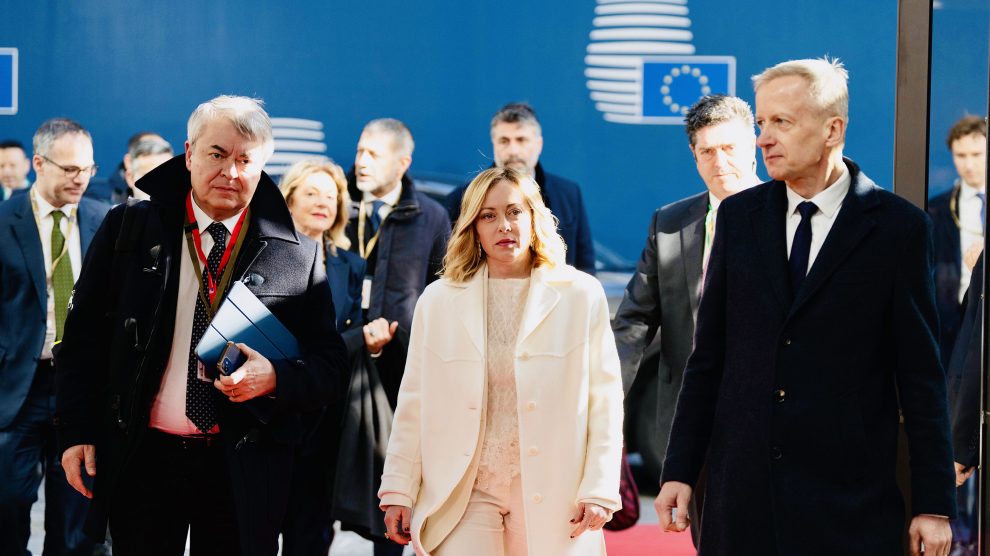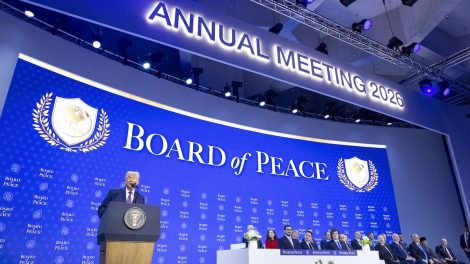On Thursday… at the special European Council, Italian Prime Minister Giorgia Meloni gave her go-ahead to the ReArm Europe plan despite concerns that a proposal by European Commission President Ursula von der Leyen might overburden Italy with debt.
- The government’s decision is bolstered by the fact that military expenditures will now be excluded from the Stability Pact—a long-sought objective for Italy.
- The ReArm Europe plan aims to mobilise around €800 billion over the next four years, the bulk of which will come from member states increasing their national spending on defence and security.
NATO and strategic meetings. At the upcoming summit in Paris convened by French President Emmanuel Macron, Italy’s Defence Ministry will participate in high-level discussions on the deployment of European forces in Ukraine.
- General Luciano Portolano, Italy’s Chief of Defence Staff, will attend Tuesday’s “coalition of the willing” summit to explore all scenarios, including the possibility of deploying forces under a United Nations mandate.
- While Meloni has expressed reservations about sending troops directly—she favours peacekeeping missions—she insists on reinforcing NATO’s framework, particularly extending Article 5 to Ukraine, to ensure a stable, long-term security guarantee.
Transatlantic dialogue. Meloni has also pushed for a US-EU summit on Ukraine, arguing that failing to reconnect the Atlantic would be a “grave mistake.”
- Despite her efforts, the proposed summit has yet to materialise, and even US President Donald Trump has not embraced the format.
- At the Brussels summit, Meloni attempted to reference Trump’s peace efforts in the conclusions, but other EU leaders rejected the request.
- Internally, she criticises the EU rearmament plan—rejecting the term “rearm” as misleading—and contends that discussions should focus on “defence and security”, including “raw materials and many other domains.”
- Her comments appear directed, in part, at Lega’s leader, Deputy Prime Minister Matteo Salvini, whose ultra-Trumpian rhetoric has stirred tensions within the coalition.
Fiscal concerns. A significant point of contention remains Italy’s mounting debt.
- The ReArm Europe plan currently envisages loans that will eventually need repayment, potentially further burdening Italy’s finances.
- Meloni raised concerns about sustainability in closed-door discussions at the summit and proposed an alternative via “European guarantees.”
- Like the InvestEu Programme, this model would protect private investment without increasing the debt burden.
- Italian Finance Minister Giancarlo Giorgetti is expected to advance this proposal at the Economic and Financial Affairs Council next week.
A broader strategic context. Beyond defence investments, Meloni advocates a comprehensive revision of the Stability Pact to exclude military spending and investments in competitiveness.
- She highlights that such a revision, long advocated by Italy, would support broader economic and strategic autonomy for the country.
- In addition, she emphasised that NATO must remain the cornerstone of European security while balancing global pressures—citing recent attacks by Russian President Vladimir Putin on Macron and dismissing claims that the West should diverge from traditional alliances.
What’s next. As Italy navigates complex internal and external pressures, its strategic choices will be determined by a careful balance between defence ambitions and fiscal prudence.
- With the coalition’s internal dynamics under scrutiny—reflected in recent polls showing that 74% of Italians oppose increased arms investments—Meloni’s government faces a challenging political landscape as it strives to secure Italy’s role in a rapidly evolving global order.
- Internal political divisions further complicate the landscape: while Lega, a member of the current governing coalition, maintains strong anti-EU and anti-NATO rhetoric, the Five Star Movement—now in opposition—echoes similar sentiments.
- Meanwhile, the main opposition party, the Democratic Party, remains deeply divided over the ReArm Europe plan.
- Consequently, Meloni finds herself somewhat isolated in her robust commitment to Euro-Atlantic policy.





